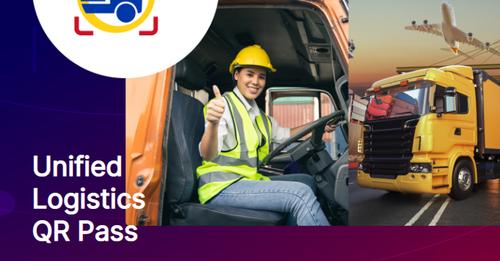
-
Cavite, Subic, Clark ecozones pilot Unified Logistics Pass for cargo trucks
-
Truckers may now register for the pilot implementation of the ULP in Cavite Export Processing Zone, Clark Freeport Zone, and Subic Bay Freeport Zone
-
Truckers may register online at ulp.ltfrb.gov.ph to get their quick response code, which will be used at the three pilot areas
-
244 mobile devices and 344 powerbanks were turned over to the Land Transportation Franchising and Regulatory Board (LTFRB) for use in the implementation of the ULP
The Cavite, Subic and Clark ecozones are pilot testing the Unified Logistics Pass (ULP) for cargo trucks.
Truckers may now register for the pilot implementation of the ULP at the Cavite Export Processing Zone, Clark Freeport Zone, and Subic Bay Freeport Zone.
Truckers may register online at ulp.ltfrb.gov.ph to get their quick response (QR) code, which will be used at the three ecozones, according to the Anti-Red Tape Authority (ARTA).
The ULP is a single pass in the form of a QR code meant to facilitate movement and ease of port-entry of cargo trucks via elimination of various permits, licenses, and pass-through stickers required by economic zones, ports, and local government units (LGUs).
ARTA earlier said the ULP would adopt a single registration scheme for trucking companies, and the QR code provided would be scanned and accepted by all government agencies including LGUs, port authorities, and economic zones.
Citing data from the World Bank Group (WBG), ARTA said the Unified Logistics Pass ULP system is projected to streamline documentary requirements from 209 to 56 or by about 73%, and cut processing time from 271 days to 35 days or by 87%.
Using standard model cost calculation, the WBG also said the Philippine government can save over P1.9 billion in funds with the ULP.
Implementation of the single pass is seen to lower the cost of basic goods by eliminating various port and pass-through fees that truckers have to pay and eventually pass on to clients.
The project was officially launched last January with the signing of a memorandum of agreement and joint memorandum circular for the pilot implementation by various government agencies, port operators, and private sector partners.
READ: Single pass for cargo trucks launched this month
Meanwhile, the Department of Science and Technology-National Capital Region (DOST-NCR) on May 16 formally turned over 244 mobile devices and 344 powerbanks to the Land Transportation Franchising and Regulatory Board (LTFRB) for use in the implementation of the ULP. The mobile devices will be used to scan the QR codes.
Beyond RapidPass
ARTA undersecretary Ernesto Perez earlier said ULP can mitigate road traffic since trucks with the QR code will no longer be stopped by traffic authorities for pass inspection. He said the use of the single pass would rid the country’s roads of non-franchised or colorum container trucks as the pass will only be issued to legitimate holders of Certificate of Public Convenience.
Stakeholders, especially truckers, have long been complaining about pass-through fees collected by LGUs, especially LGUs in Metro Manila.
The ULP is a migration from the RapidPass, an online system implemented in 2020 giving frontliners and Allowed Persons Outside of Residences quick passage through checkpoints in Metro Manila during community quarantine periods.
RapidPass developer DevConnect and Department of Information and Communications Technology (DICT) are assisting in the ULP project.
The ULP is part of ARTA’s National Effort for the Harmonization of Efficient Measures of Inter-related Agencies or Project NEHEMIA. Launched in March 2020, Project NEHEMIA is a sector-based streamlining effort that involves both capacity building with identified agencies and public hearings with stakeholders regarding existing and new regulations.
Logistics is one of five sectors included in the first phase of Project NEHEMIA.




